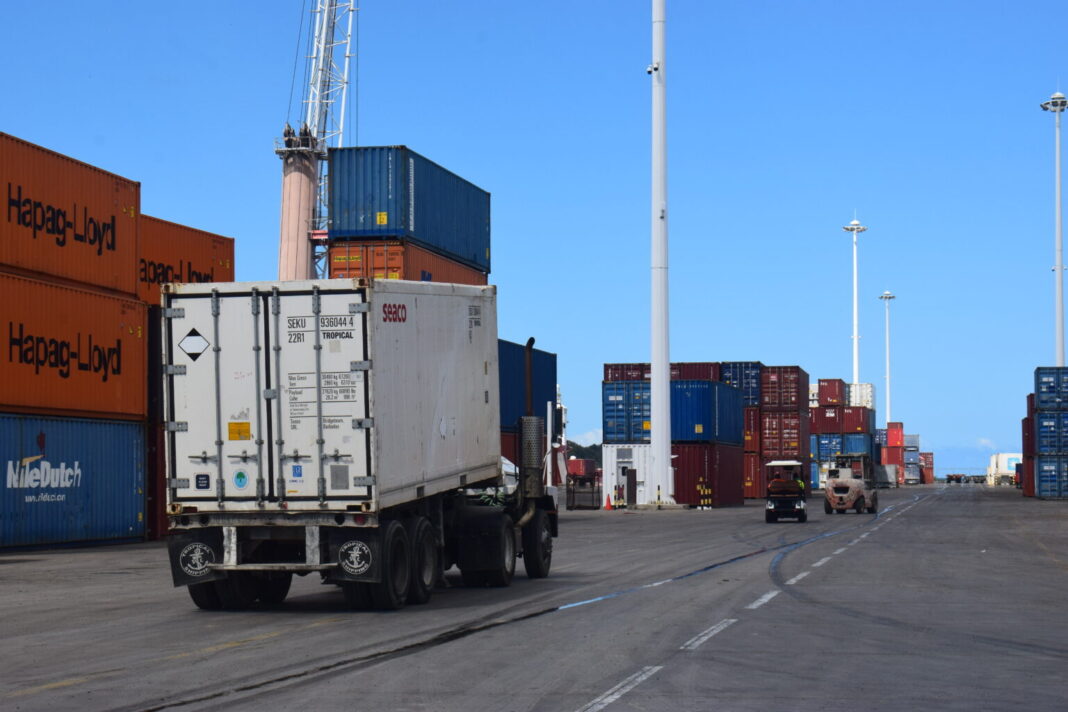Antigua and Barbuda, like many other Caribbean nations, is closely monitoring the potential impact of a proposed policy in the United States that could have significant repercussions for the region’s economy.
If enacted, the policy would impose a tariff of approximately US $1.5 million on container ships built in China and operating in US ports. This measure, currently under deliberation in Washington, has raised concerns about its potential to destabilize Caribbean economies, where many nations, including Antigua and Barbuda, are heavily reliant on global shipping.
The proposed tariff has been met with strong opposition from shipping companies operating in the Caribbean. Tim Martin, the president of Tropical Shipping—a key supplier of essential goods to the region—testified before the US Trade Representative (USTR), warning that the move could lead to a sharp rise in shipping costs and threaten the viability of American-owned shipping firms.
Tropical Shipping, which operates out of Palm Beach, Florida, serves as a critical lifeline, accounting for 55% of cargo shipment in Antigua and Barbuda, according to Darwin Telemaque, CEO of the Antigua and Barbuda Port Authority.
Tropical Shipping operates out of the port of Palm Beach, Fla., and nine of its 19 vessels were built in China up to 25 years ago. It transports vital supplies such as food, building materials, medical provisions, and hurricane relief items.
“The US shipping industry serving the Caribbean cannot absorb the additional costs of the proposed port fees, which would have significant economic consequences,” Martin testified. “Instead of strengthening American competitiveness, these port fees would push American-owned carriers like Tropical out of business.”
Martin explained that the imposition of a US $1 million port fee on Chinese-built vessels would force his company to double its freight rates with an average increase of US $2,500 per 40-foot container. “An increase of this magnitude would be catastrophic for American exporters and Caribbean consumers”, he cautioned.
For Antigua and Barbuda, a country that relies heavily on US imports, this could drive up the cost of everyday goods, including food and construction materials, further exacerbating inflationary pressures.
Prime Minister and Minister of Finance Gaston Browne has warned that the tariff could push regional inflation rates to as high as 14%, an alarming prospect for households already grappling with rising prices. In addition to inflating costs, the tariff could disrupt the reliable flow of goods into Antigua. If Tropical Shipping faces difficulties absorbing these additional costs, the island could be forced to look for alternative suppliers from regions such as China or South America, disrupting established trade relationships and potentially destabilizing the supply chain.
The Port Authority’s CEO has echoed these concerns, highlighting that freight rates in the Caribbean could see an increase of up to 100% if the US proceeds with the proposed policy.
Furthermore, Martin cautioned that the policy could inadvertently strengthen the position of Chinese shipping companies in the Caribbean, shifting regional trade patterns and potentially weakening the influence of US shipping companies like Tropical Shipping.
To mitigate the economic fallout, Martin has called on the USTR to exempt US-owned companies such as Tropical Shipping from the new tariffs. He argued that the proposed tariff unfairly penalizes companies for decisions made years ago, when limited alternatives to Chinese-built vessels were available. Tropical Shipping, for instance, operates several vessels that were built in China between eight and 25 years ago, before other options were viable.
Prime Minister Browne has confirmed that efforts to address the situation are underway at the regional level. CARICOM Chair and Barbados Prime Minister Mia Mottley is expected to write to US President Donald Trump, urging a carve-out for Caribbean nations under the Caribbean Basin Initiative (CBI). Additionally, Browne indicated that alternative strategies are being explored at the Cabinet level, including the potential for increased trade with South American countries such as Brazil.
Trade Minister EP Chet Greene was unavailable for comment at the time while the island manager for Tropical Shipping Tamara Lowe-James could not be reached for further comment.




